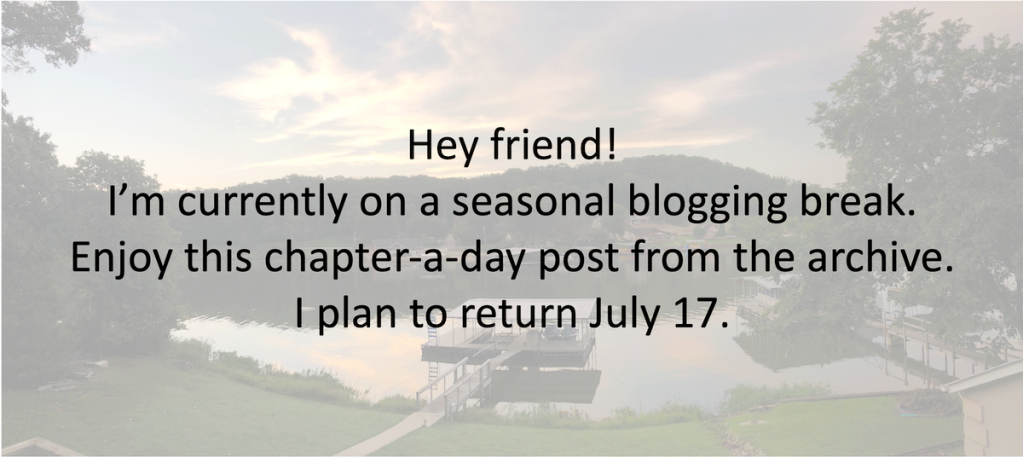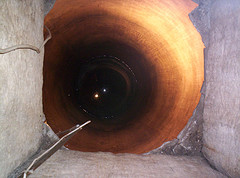
Purpose & Timing (CaD Acts 2) – Wayfarer
When the day of Pentecost came, they were all together in one place.
Acts 2:1 (NIV)
One of the things I’ve observed throughout the Great Story is the fact that God does things with both purpose and timing. The purpose and timing happening in today’s chapter can easily go unnoticed by the modern and casual reader.
In reading and meditating on the first two chapters of Acts, I couldn’t help but notice a pattern:
Before His ministry began, Jesus spent 40 days of preparation fasting, and praying. He was then baptized by John, the Holy Spirit descended on Him, and His ministry was effectively launched.
Before their ministry began, Jesus’ disciples spent 40 days of preparation. According to their own testimony, the risen Jesus appeared to them during this period and taught them. They were then baptized in the Holy Spirit and their ministry was effectively launched. (FYI: At this point, the disciples [“follower”] became known as apostles [“sent”]).
But that’s just the top layer. The pattern gets even deeper and better, because the events of Jesus’ crucifixion, resurrection, and the outpouring of Holy Spirit are purposefully timed. They correlate to events and festivals God established through Moses back in Exodus and Leviticus at the time God established His law. What God was doing through Moses and the Law are linked to what God was doing through Jesus and the outpouring of the Holy Spirit.
The Passover festival was a celebration of God’s deliverance of His people in the final climactic plague on the Egyptians that led to the end of their slavery and the beginning of their freedom. In that plague, death came to the first-born male of every household unless the blood of a sacrificial lamb was spread across the door. The spirit of death “passed over” the households whose doors were covered in the blood of the lamb.
Jesus’ death and subsequent resurrection at the time of the Passover festival marked God’s deliverance for any who believes, leading to the end of slavery to sin and the beginning of spiritual freedom. Jesus became the sacrificial lamb, His blood poured out for all. His victory over death and resurrection made it possible for death to pass over any and all who would believe.
Pentecost was another ancient Hebrew festival, known as the Festival of Weeks. The first fruits of the harvest were celebrated and brought to the Temple as offerings. It was also traditionally commemorated as the day when God gave Moses the Law back in the book of Exodus.
So on the day of commemoration of God giving the Law through Moses, God gave the Holy Spirit to all believers. In His Message on the Mountain, Jesus said, “I didn’t come to abolish the Law (of Moses) and the Prophets, but to fulfill them.” The outpouring of the Holy Spirit was this fulfillment. To the believers in Corinth Paul wrote: “You show that you are a letter from Christ, the result of our ministry, written not with ink but with the Spirit of the living God, not on tablets of stone but on tablets of human hearts.” (emphasis added).
In kicking off the harvest celebration by the bringing of first-fruit offerings, Jesus has all of the disciples, the first fruits of His early ministry. As He once told them, “I tell you, open your eyes and look at the fields! They are ripe for harvest.” With the outpouring of the Holy Spirit and the launched ministry of taking Jesus’ Message to the world, it is a celebration of a spiritual harvest of souls reaping eternal life.
In the quiet this morning, I find myself comforted in the reminder that God works with purpose and timing. I believe this is not only true in the events described in today’s chapter, but in my life, as well. There was a lot that the Apostles still didn’t see or understand about what was happening. In the same way, I often find myself on life’s road without clarity or understanding of what God is doing or where I’m clearly being led. Nevertheless, I know God works with purpose and timing, and I will continue to trust that today as I press on in the journey.

If you know anyone who might be encouraged by today’s post, please share.














